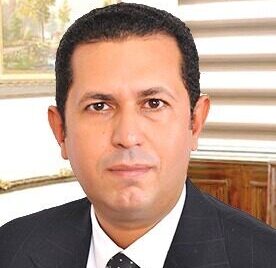Africa is rich in human and natural resources, which qualify the continent as a mainstay of global industry. It would be no exaggeration to say that Africa could be the land of promising opportunities in industry and agriculture that peace and security are achieved there.
Major countries have realised the strategic importance of the black continent and what it represents for the world’s future due to its abundant natural resources, big investment opportunities and massive human wealth exceeding 1.2 billion people. In light of this, a fierce competition has emerged between key world powers to expand their influence in the continent and win the African treasure represented in its vast mineral resources.
Egypt firmly believes in the importance of developing the black continent and supporting the industry, trade and agricultural sectors there, as well as safeguarding the stability and security of its citizens. In Light of this, President Abdel Fattah El Sisi, who is leading reconstruction and development efforts in the continent, has adopted a strategy to promote intra-African trade in order to transform Africa from an exporter of raw materials to one that is capable of sustainable development by using its resources for the benefit of its peoples.
In this context, holding of the Intra-African Trade Fair (IATF2023) for the third time in Cairo, with the attendance of President Abdel Fattah El Sisi reflects the pioneering Egyptian role in consolidating intra-African trade. The president’s speech during his inauguration of the fair last Monday is considered a roadmap to move towards achieving this desired goal.
President Sisi stressed the importance to strengthen intra-African trade between countries.
“We have enormous economic capabilities and huge natural resources in all fields, and only need coordination and positive co-operation between all of us,” Sisi said.
President Sisi affirmed that Egypt is only keen on building, working and reconstruction and nothing more.
There is no doubt that the presence of a common African market can facilitate the utmost utilisation of African states’ natural resources for the advancement of their economies. it will also help activating local manufacturing and open the way for improving the quality of African commodities and increasing their competitiveness in regional and international markets.
Since 2014, Egypt’s leadership has realised the need to change its foreign strategy. Africa has been at the top of this strategy to mobilise African efforts to confront challenges and crises in the countries of continent and advance integration there.
Egypt’s chairmanship of the AU in 2019-2020 witnessed unprecedented successes. During this period, several initiatives relating to accomplishing sustainable economic development in Africa were launched, including the African Continental Free Trade Area (AfCFTA) agreement at the AU summit in Niger in 2019.
The AfCFTA forms the world’s largest free trade area by creating a single market for goods and services of almost 1.3 billion people across Africa and deepening the economic integration of Africa.
Egypt also took over the leadership of COMESA over the past two years — a critical time that witnessed global economic crises resulting from Covid-19 crisis and the Russian-Ukrainian war.
However, it has succeeded with the introduction of the regional industrial integration initiative within the framework of COMESA’s manufacturing strategy which aims to deepen industrial production in the whole of Africa.
The consecutive crises that the world has gone through over the past four years emphasised the fact that African states should depend on themselves. Theses crises have also proved the disruption of international supply chains is possible. This means that Africans have only one choice to sustain amidst the global fluctuation, which is to harness their economic capacities to develop and depend on themselves.
Mohamed Fahmy is the editor-in-chief of The Egyptian Gazette and Egyptian Mail newspapers






Discussion about this post